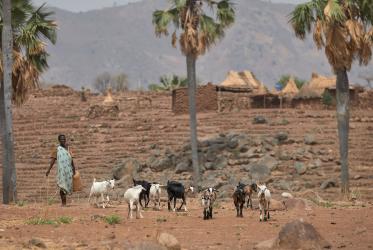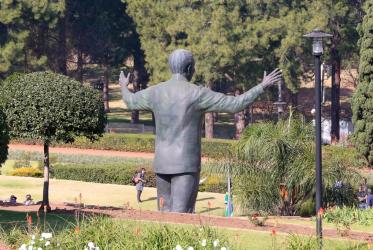Displaying 1 - 20 of 162
23 November 2023
Pandemic and pedagogy: what are the valuable lessons?
21 December 2022
Theological education in Africa promotes social transformation
03 November 2022
WCC leaders recall life-changing experiences from early days
10 February 2022
New student body at Bossey Ecumenical Institute “a source of joy”
14 September 2020
South Sudan Church leaders welcome new cabinet
15 March 2020
Young Africans are eager to grapple with challenges
09 January 2020
WCC mourns passing of Prof. Vuyani Vellem
09 December 2019
South Sudan Council of Churches: peace “is a question of the heart”
11 November 2019















